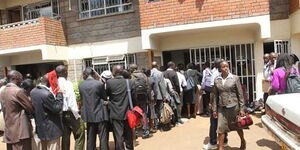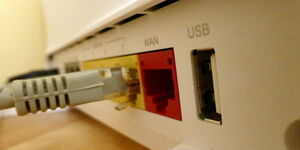The Kenyan government is seeking private investors for a $245 million (about Ksh31.7 billion in the current exchange rates) high-voltage transmission line project to replace the cancelled Adani deal.
This comes months after President William Ruto cancelled the contentious deal in November, the day after Gautam Adani, the director of Adani, was indicted in the United States in a $250 million (about Ksh32.4 billion in the current exchange rates) graft case.
Kenya is seeking to have the project, which will involve the construction of four power lines, commence in 2026 and be completed in 2029.
According to a report by Bloomberg, the private partnership is expected to bridge the “major infrastructure financing gap”, which currently stands at $5 billion (about Ksh647 billion in the current exchange rates).
The Kenya Electricity Transmission Company (KETRACO) had signed a power deal with India's Adani Energy Group, worth Ksh95 billion, to construct 422 kilometres of vital transmission lines before it was cancelled.
On October 11, Energy Cabinet Secretary Opiyo Wandayi confirmed that the government had signed a deal with the Indian conglomerate despite intense opposition.
"This agreement marks the beginning of a transformative initiative to develop, finance, construct, operate, and maintain key transmission lines and substations across Kenya," Wandayi declared.
Defending the Adani Group just hours before the president would cancel the deal, Wandayi stated that the government had conducted due diligence before going ahead with the deal.
"On the matter of Adani's indictment, under Section 41 of the Private Public Partnership (PPP) Act, we have an elaborate mechanism for undertaking due diligence," Wandayi stated.
"The PPP Directorate, domiciled under the Treasury in coordination with KETRACO, conducted a due diligence exercise on Adani Energy Solution in two phases."
In addition to this Ksh37 billion acquisition, the government is also in talks with the Power Grid Corporation of India and the African Development Bank (AfDB) Africa50 for the construction of two power lines costing $319 million (about Ksh41 billion in current exchange rates).
This is all in a bid to achieve universal electricity access by 2030 through the last-mile connections targeting rural homes and the revamping of ageing lines.












